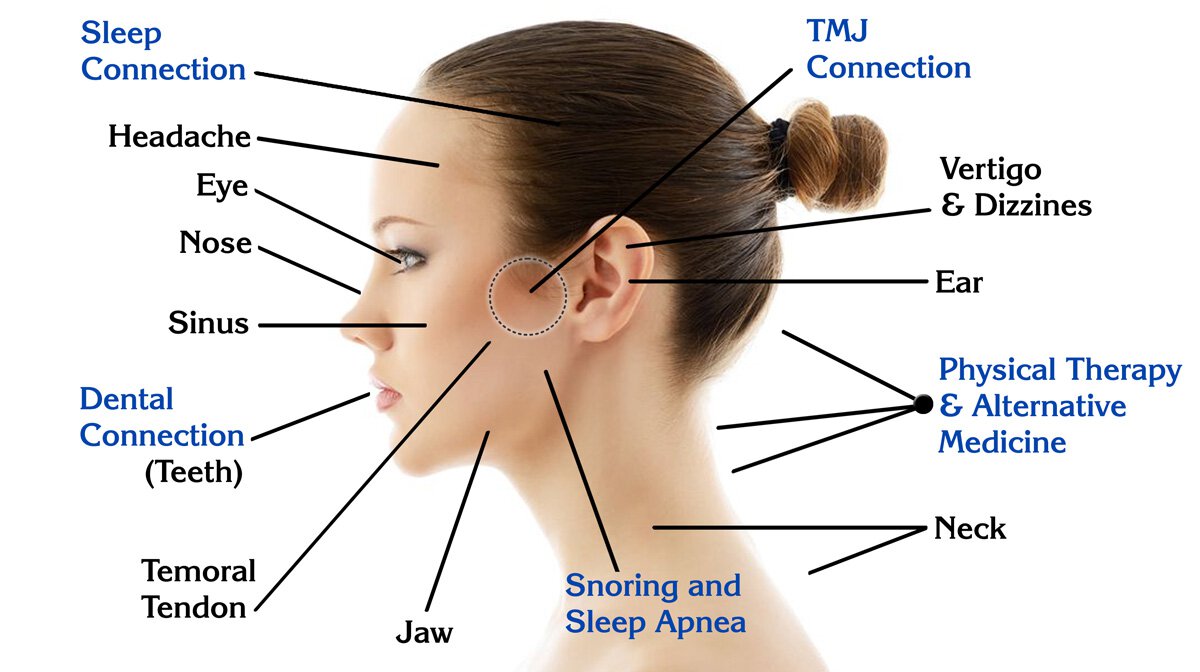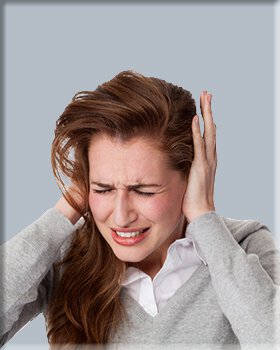


Do you often hear ringing in your ears? Maybe it's more like a buzzing or roaring sound. If you do, you might be suffering from tinnitus. You now might be asking yourself “what is tinnitus? Is it treatable? How did I get it?” Hopefully, we can help shed some light on these questions and concerns.
First, tinnitus is not a condition or disease; it is a symptom of an underlying cause.
Tinnitus is when someone hears internal noise (usually a ringing sound), even though no other external sounds are present. These sounds often make it difficult to concentrate or hear other sounds that are present. According to the American Tinnitus Association, nearly 50 million Americans suffer from tinnitus.
There are two types: subjective and objective.
Subjective tinnitus is when only you can hear the noise. This is the most common of the two types. Objective tinnitus is when the doctor can hear the noise during an examination. An example of this is pulsatile tinnitus, which sounds like a rhythmic pulsing in the ear that is in sync with your heartbeat. This rare type can be caused by blood flow issues, brain tumors or other brain abnormalities.

To understand how tinnitus works, you first have to understand how your brain hears sounds.
Your brain processes sounds when they travel through the ear canal to the middle and inner ear. This is where inner hair cells transform the sound waves into electrical signals. These signals then travel to the brain's auditory cortex via the auditory nerve.
If the hair cells ever get damaged, the brain's circuits don't receive the expected signals, so the brain creates the illusion of sound to make up for it. This is why most causes of tinnitus have to do with injuries or conditions that involve the ear's nerves or the brain's auditory cortex.
However, tinnitus can occur from anywhere within the auditory pathway, which includes the outer ear, middle ear and inner ear.
The main symptom is noise in your ears. There are many variations of this:
These noises can range in pitch and can affect one or both ears. It can be present all the time or intermittent, though it is usually most noticeable at night when things are quiet.
Other symptoms include ear congestion, imbalance or pressure.

There are dozens of underlying causes of why you could be experiencing tinnitus. They range from ear issues to different diseases or disorders to head or neck injuries. Some medications can even cause tinnitus.
Though anyone can experience it, people who are older or men, experience loud noises frequently, have cardiovascular issues, or smoke, are at higher risk than others.
Here is a list of possible causes:
Tinnitus can severely affect your quality of life. If left untreated, it can hinder your day-to-day activities and disturb your concentration or sleep. People who experience it can also exhibit:
The best treatment is to treat the underlying cause, as there is no cure. For example, if TMJ is causing ringing in your ears, treat the TMJ first.
Your next best option is to try and reduce the risk of increased tinnitus. Use hearing protection, especially if you are exposed to loud sounds for long periods of time (construction workers, military personnel, musicians, pilots, etc.). Don't listen to music at high levels of volume. Keep your blood vessels healthy by exercising, sleeping and eating right. Avoid smoking and alcohol or caffeinated drinks. Keep stress levels low by practicing meditation, tai-chi, yoga and more.
Ultimately, your goal is to suppress the noise as much as possible so it becomes manageable. This can often be done with electronic devices, such as white noise machines or masking devices. Some undergo tinnitus retraining therapy (TRT), which retrains the auditory system to accept the noises as “normal.” For those that have hearing loss, many recommend hearing aids or cochlear implants.

Multiple scientific articles show a correlation between tinnitus and TMJ (temporomandibular joint) disorder. The joint is anatomically positioned in front of the ear canal, so any misalignment of the jaw could cause the joint to press against the ear canal and auditory structures. In turn, this could cause tinnitus.
A study from Germany showed that tinnitus was eight times more prevalent in people with TMJ than people without it, which showed a significant correlation between tinnitus and TMJ. In turn, this means that TMJ therapy could reduce and, at times, eliminate tinnitus symptoms.
Sherman Oaks TMJ specialist, Dr. Eddie Siman, is known for his ability to treat TMJ disorder. Through his expertise in the field, Dr. Siman has provided relief to countless patients by simply and holistically repositioning the jaw without the use of drugs, a single injection or surgery.
Schedule your appointment with Dr. Siman today to resolve your tinnitus and TMJ issues. Dr. Siman has an in-house CT scan that can show the relationship between the joint and ear canal.
Dr. Eddie Siman has over 35 years of experience and is a premier TMJ and Sleep Apnea expert in Los Angeles and Orange County. Many come to Dr. Eddie Siman with severe tinnitus, migraine problems, and sleep apnea with no relief in sight. Little do these patients know that their painful symptoms are tied to the Temporomandibular joint (TMJ). Think outside the box and pay a simple visit to Dr. Siman today so you can finally find the source of all your pain and get rid of it once and for all.
Schedule your Private Consultation and Diagnosis Appointment with Dr. Siman Expert TMJ, Cosmetic Dental, and Sleep Apnea Treatments.
Call today (818) 574-5009
14629 Ventura Blvd, Sherman Oaks, CA 91423
414 N. Camden Drive Suite #1240, Beverly Hills, CA 90403